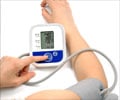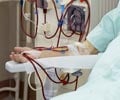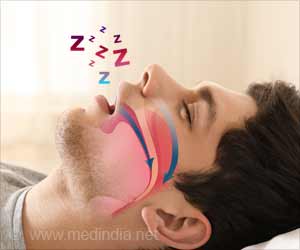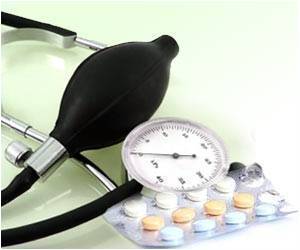Mindfulness-based stress reduction (MBSR) for hypertension has been discussed in a study and trial results have been released in Psychosomatic Medicine.

According to the new study, these changes can be dramatically augmented by MBSR as the methodology includes stress reduction, meditation for depression and anxiety and structured treatment management program.
The blinded trial included nearly 100 patients between 30-60 years of age who were not taking medications for pre-or hypertension. The study was conducted with Joel Hughes PhD, Associate Professor of Psychology at Kent State University.
"This was one of the first prospective randomized trials of MBSR as a nonpharmocologic treatment option," said study author Dr. Josephson, Director Cardiac Intensive Care and Cardiovascular and Pulmonary Rehabilition at the UH Harrington Heart & Vascular Institute and Professor of Medicince at Case Western Reserve University School of Medicine.
"We are optimistic about its potential as a result of the findings and hope that more trials can be conducted to further evaluate the effectiveness of MBSR as it could have broad applications for multiple maladies."
The mindfulness-based stress reduction program consisted of eight group sessions that were 2.5 hours in duration and consecutive weeks. The MBSR included instruction and practice in mindfulness meditation skills along with discussion of stress, coping and homework assignments designed for patients to document their mood and anxiety levels.
Advertisement
The alternate arm of the trial involved only progressive muscle relaxation (PMR) that included tension and release of specific muscle groups and homework assignments designed to mimic session time exercises.
Advertisement
The study was funded by a grant from the National Center for Complementary and Alternative Medicine, National Institutes of Health to Case Western Reserve.
"This could prove to be an adjunct for individuals with poorly controlled blood pressure," said Dr. Josephson. "It could also potentially decrease the need for medications as the only options for optimizing blood pressure levels."
Source-Eurekalert

![Pulmonary Arterial Hypertension [PAH] - Symptoms & Signs - Causes - Diagnosis - Treatment Pulmonary Arterial Hypertension [PAH] - Symptoms & Signs - Causes - Diagnosis - Treatment](https://images.medindia.net/patientinfo/120_100/pulmonary-arterial-hypertension-pah.jpg)













